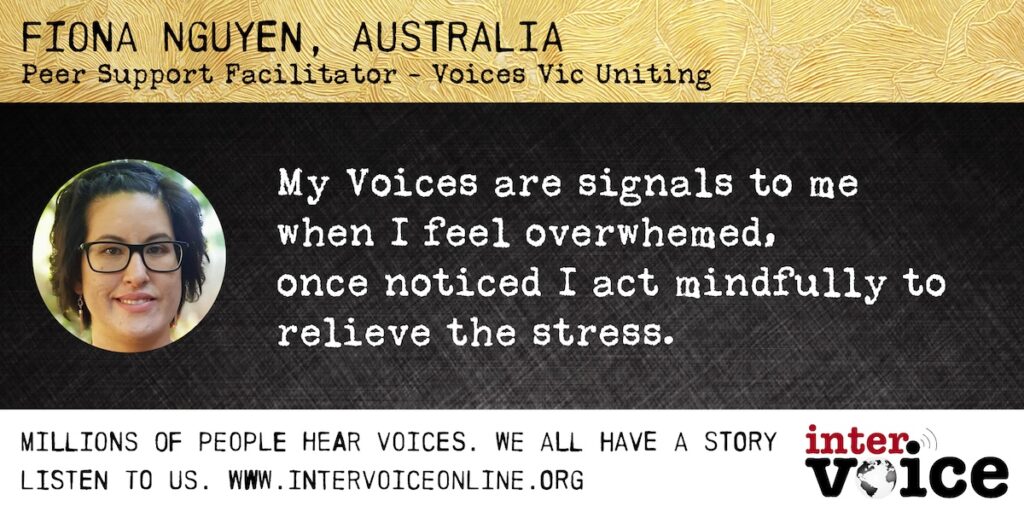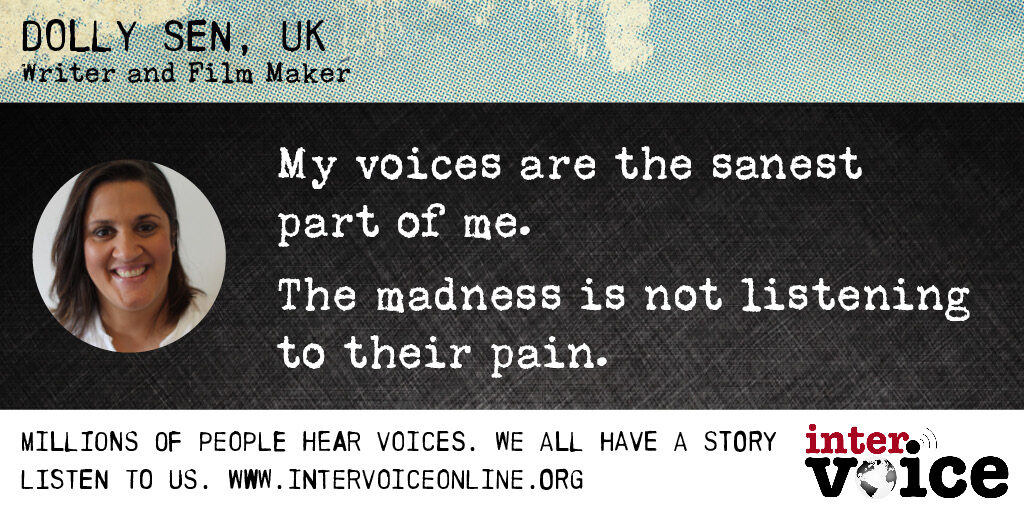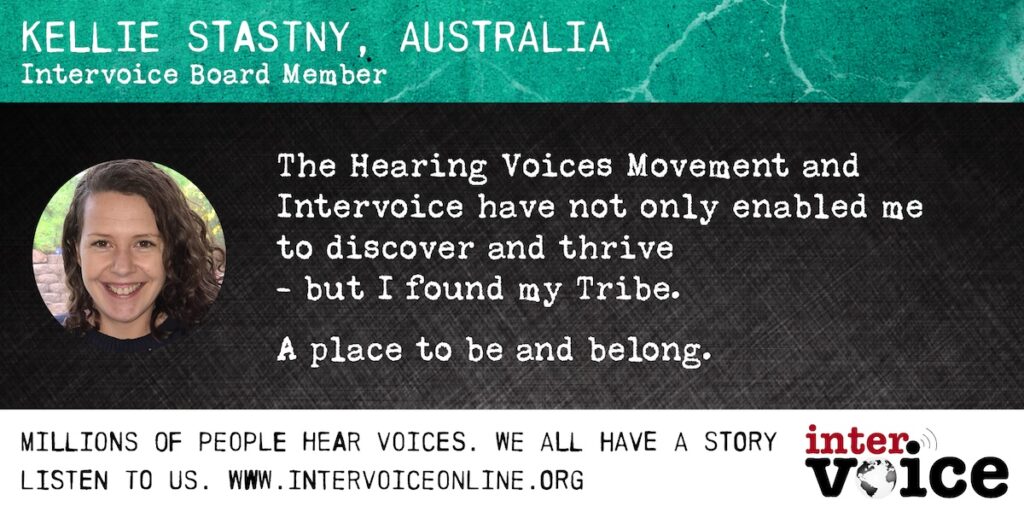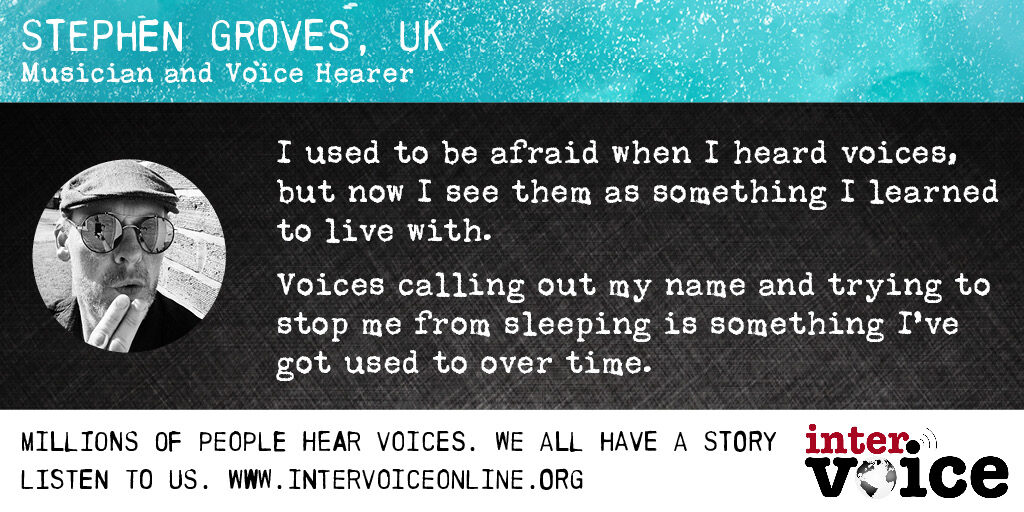Congress Day Two
Introduction and welcome
John Jenkins, a Director of Intervoice, welcomed everyone to the final day of the Congress.
Congress Day Two: Keynote Speeches
Voices at Work in Australia (Joe Calleja)
Joe is CEO of Richmond Fellowship Western Australia. He began by saying that the work of Romme and Escher was a decisive moment in the lives of many people in Australia. One of the challenges of Australia is that it is such a large country and the population is scattered around the coast.
Joe briefly described the history of the Hearing Voices movement there, beginning with Michael White’s Narrative Therapy in the 1970s; he mentioned the importance of John Watkins book in the 1990s and also in the 1990-2000 training courses run by Ron Coleman, Pat Deegan and Arana Pearson. In 2005, the Prahran Mission in Victoria United Church started a group and a clinic in the hospital. In July that year, the Richmond Fellowship in Western Australia was visited by Ron and Karen. In October, Lynn Mahoub started Network Australia in Perth. A Trust gave a grant for £26k for training and further funding and the Commonwealth provided the money to train 30 people in Perth. In 2006 the New Zealand Hearing Voices network was set up.
2008 was an important year when the Intervoice meeting was held in Perth. It was the first non-European Intervoice meeting and was attended by 300 people from all over the world. In 2013 the Victoria network will host the Intervoice meeting and International Congress which promises to be a spectacular event.
The Richmond Fellowship in Australia is currently a loose federation, but it will soon become a legal entity. Its origins were in the UK and there are over 40 branches worldwide. It was established in Australia in 1975. RFWA has a visionary Board and is undergoing a major change process. The Board have seen the need to change their image and their message about mental health. The logo has been changed and the strapline changed from “Rebuilding Lives” to “Recovery First.”
The organisation has faced many challenges, for example, as recently as 2005 NGOs were not considered to be doing “real” work – a perception that has now changed. But the image, language and culture of RFWA needed to change and some of the ideas took staff out of their comfort zone. It is important that people with lived experience drive the change. Training has been a very important part of the change process and a lot of reflection has been done. There was also the task of managing stakeholder relationships. Some parts of the medical system accused them of being anti-psychiatry and anti-medication, so there is now a statement on the website addressing this.
The challenges facing them included:
- How fast to go – do we walk alongside or crash? There was a lot of inertia in the system and it was challenging to try to manage the tension between progress and change
- There was a gap to bridge between internal and external consumers and training was critical
- Inter-agency partnerships was one area that could have been managed more effectively
However, a recent conference with 700 delegates from all over the world enabled a debate with mainstream services about diagnosis, medication and the use of the peer support model for voice hearers.
The Future:
- Intervoice Congress 2013
- A new definition of mental health services
- Research directors
- National systems e.g. links with employment services
- Engaging with key decision makers
- VoicesVic’ excellent media coverage
- Educating politicians
- Excitement about Marius and Sandra’s forthcoming visit
Working in Group Psychotherapy with People with Psychosis (Professor Manuel Gonzalez de Chavez – Translator of “Making Sense of Voices” into Spanish)
Manuel traced the origins of group networks back 200 years to Glasgow. In the 20th century group work formed part of social psychology. In 1931 groups were introduced into a Washington USA hospital and, during the Second World War, they were introduced more widely into the UK. Very few books were written on the subject.
In 1996 Kanas reviewed the effectiveness of group psychotherapy and found that it resulted in more enthusiasm and better compliance. There were great therapeutic benefits.
A lot of research has been dedicated to mirroring and some think it is the basis of everything. Group mirroring gives us a more realistic image of ourselves. Each patient is a mirror. Cognitive decentring is an important element. A group provides support factors, self-revelation factors and learning factors from other group members.
Manuel has published a number of papers on this topic.
Recovery and Human Rights (Professor Michaela Amering)
“Recovery is a human right.”
Recovery is the guiding principle of mental health policy in the English speaking world, but it is different in other parts of the world. Recently, there has been an amazing response in Germany, Switzerland and some parts of Austria where practices are beginning to change. It is “the end of incurability.”
What is recovery? In a medical context – service based; in a social context – user based. It is:
- Personal not clinical
- Recovery rather than recovered from
- External factors rather than internal
- Individual rather than person in conflict
- User survivor perspective versus scientific
- It is a civil rights movement or a tool to change the mental health system or both.
What evidence is being questioned? The example of the human right of self-determination was given as an example. The UN Committee on the rights of people with disabilities (CRPD) is important. Why? Because users say so, and because lawyers say so. Disability is an evolving concept, for example, “psychosocial disability” rather than “mental impairment”. The CRPD is a formal convention which has the force of international law when it is ratified and most UN countries have done so.
Article 5 of the convention sets out the principles. One complicated area of debate is the notion of coercion which contravenes the right to non-discrimination; an example of this being implemented in Austria is that there will be no special schools – everyone will have the right to be accommodated in schools.
Michaela referred to the work of Peter Bartlett on this subject.
Young people who hear voices – our future looks bright (Kellie Comans)
Kellie presented a Young People’s project in Australia which had won Volunteer Service of the year award mainly illustrated by Youtube clips It was accompanied by very lively Youtube clips. Kellie stressed the need for young people’s groups.
Snapshots of the future – where is the hearing voices movement going? (Eleanor Longdon, Indigo Daya, Peter Bullimore, Ron Coleman)
Eleanor talked about the stories of so many people who have lived with pain and suffering but for whom there is also hope. She said that the medicalisation of distress has been one of the biggest medical abuses. We need a new language of practice and hope and we can work towards permanent transformation of society. Our movement will provoke resistance but social change cannot be reversed. We can effect change by combating negative media; with early intervention systems; provide training on an international scale; challenge dehumanising language – words such as schizophrenia. We can work towards voice hearing as a normal human variation. We need a clear rationale and we can harness the power of the individual and the power of belief.
Indigo talked about the 123 conference in February and a film that has been made about it – see www.voicesvic.org.au
Peter said he was proud to be a voice hearer. He said that we need to reach beyond diagnosis to find the person and we need to work with, not for, the person. We need to keep our autonomy as a movement. Over the last 15 years the UK National Hearing Voices Network has stagnated. When it gained charitable status it changed from being a movement into being an organisation. It has become frightened of the Charity Commission. Look at the contrast with the vibrant movement in Australia. We have gone from being a lion to a mouse. This is the last great civil rights movement. We can start to change history.
Ron said he agreed with Peter. The other side of the world brings great hope. We need to renew and refresh. The mental health profession needs to stop practising from fear. We must walk in freedom. We need one million people. Our future is to be a mass organisation. We need conferences in every country every year. We need to move from our current base to Asia, India, Africa, and South America. This weekend we are launching a campaign. Join the campaign on the website.
Congress closes
Dirk Corstens, Chair of the Intervoice Board, closed the meeting, thanking Hywel Davies and Hearing Voices Cymru for hosting such an excellent conference and everyone who had been involved in making it such a success.












